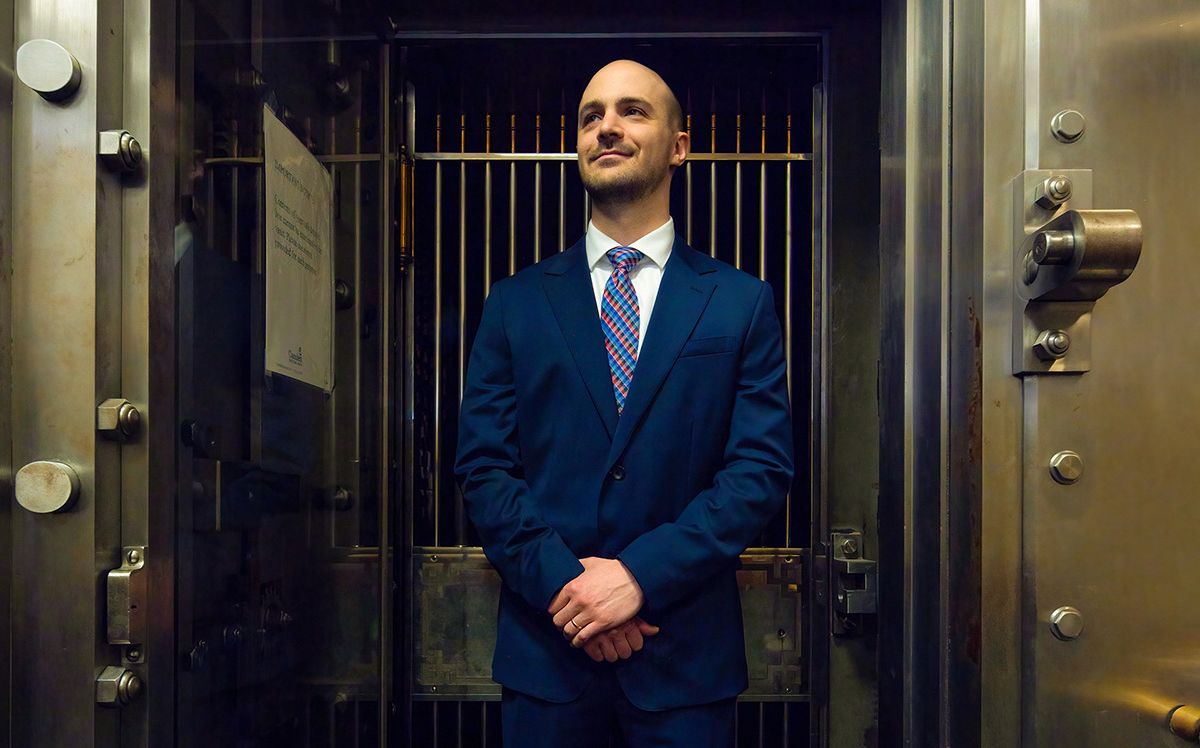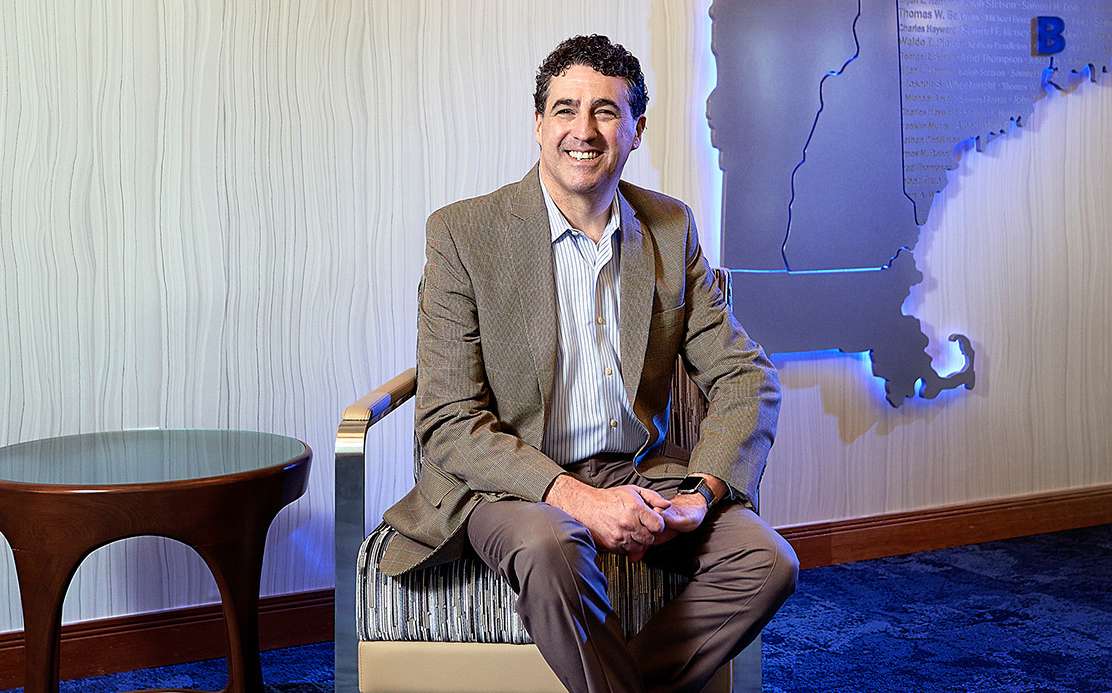
Beyond Money Matters: Careers in Maine banks offer opportunities and perks beyond recent wage hikes
 Photo / Dave Clough
Brandon Plourde, an assistant VP of financial planning an anaylsis manager at Camden National Bank, started as a part-time teller.
Photo / Dave Clough
Brandon Plourde, an assistant VP of financial planning an anaylsis manager at Camden National Bank, started as a part-time teller.
Banks, like companies across many other sectors, recently increased their minimum wage in hopes to attract new workers.
In the past year, Maine’s two largest banks each raised the rate they pay entry-level employees.
Bangor Savings Bank raised its minimum wage $2, to $18 an hour, while Camden National increased its minimum wage to $17, and gave all employees a 3% bump in wages.
In addition to higher wages, banks have a lot more to offer potential entry level employees — perks many job seekers may not be aware of, says one trade official.

“Over the past five or more years we started to realize a lot of people perceive jobs in banks as frontline persons, tellers,” says Kathy Keneborus, president of government relations at the Maine Bankers Association.
That perception — that entry-level positions are limited to the teller spot — has hampered recruiting. Banks offer a myriad of other positions, in IT, marketing and other lesser-known positions like cyber security and risk mitigation.
Keneborus notes there is a lot of room for advancement.
“Someone can start as a social media manager and move up to head of the marketing department,” she says.
Rising through the ranks
Brandon Plourde, of Camden National Bank, is one example of how advancement in banking can happen behind-the-scenes.
Plourde started out as a part-time teller and moved through several different roles, including financial analyst, treasury analyst, budget and financial analyst II, to his current position as assistant vice president of financial planning and analysis manager. All this in nine years with the bank.
“The bank truly recognizes hard work and dedication by providing opportunities for every employee to advance their careers,” says Plourde, who took advantage of the company’s tuition reimbursement program for his senior year at the University of Maine and completed Camden National’s internal leadership development program.
Banks have a strong focus on professional development, says Keneborus, who sees a job in banking as a great opportunity for recent high school grads who aren’t sure what they want to do. With the tuition reimbursement programs most banks offer, employees can pursue degrees in areas that interest them while working a steady job. Some even offer internships.
The Maine Bankers Association developed an advertising campaign to highlight the diversity of opportunities in banking. Its “Find Yourself in Banking” campaign kicked off in February to raise awareness of all the opportunities careers in banking can lead to, linking to a page on the trade association’s website with job listings at all of Maine’s banks.
“A few other things people don’t know is that so many banks give employees time to volunteer out in the communities, different things that would attract different people,” says Keneborus.
Employees of Maine banks logged 91,000 volunteer hours across the state in 2020, and 174,500 in 2019, before the pandemic.
“We hire people with a broad range of backgrounds and skill sets, but what we seek first is good people who value building relationships and making a positive difference in the world around them,” says Bangor Savings Bank president and CEO Bob Montgomery-Rice.

Personal/professional growth
An interest in employee professional development is paired with a focus on personal development and well-being at many Maine banks, one of the reasons a handful have been listed as Best Places to Work in Maine for several years running. On 2021’s list of 100 “Best Places to Work,” there were fourteen credit unions and four banks — Bangor Savings, Camden National, Machias Savings Bank and TD Bank.
When Camden National new employees begin work, they attend a new hire orientation that includes meeting senior leaders, hearing from different areas of the business and learning about workplace culture and values, and each new employee must include a personal well-being goal as part of their individual goal setting, says Renée Smyth, executive vice president and chief experience and marketing officer, and an employee for six years with the bank.
Montgomery-Rice, who has worked for Bangor Savings for seventeen years, says employee wellbeing and development is a key focus for him too, and the bank strives to help all its employees feel a sense of belonging and connection.
“Not only is it important to care for and support your employees, it is also important to invite them to have a voice in the organization … and always make time for conversations and laughter,” he says.
His employees echo that sentiment.
“Being a part of a team is what drew me to work at Bangor Savings Bank,” says Lauren Elsemore, who started working there in January. “It is a welcoming environment where you will find support at every turn. The role can be challenging but there is constant encouragement for opportunity and growth.”
While increased wages may draw a new workforce in, it may be the focus on quality of life, personal and professional growth and sense of community that keeps employees in banking.
“Banking is not just a job — it’s a career,” says Keneborus. “I can’t tell you how many bank employees got a summer job as tellers and after graduating got a job at the bank — a few CEOs started that way.”










0 Comments